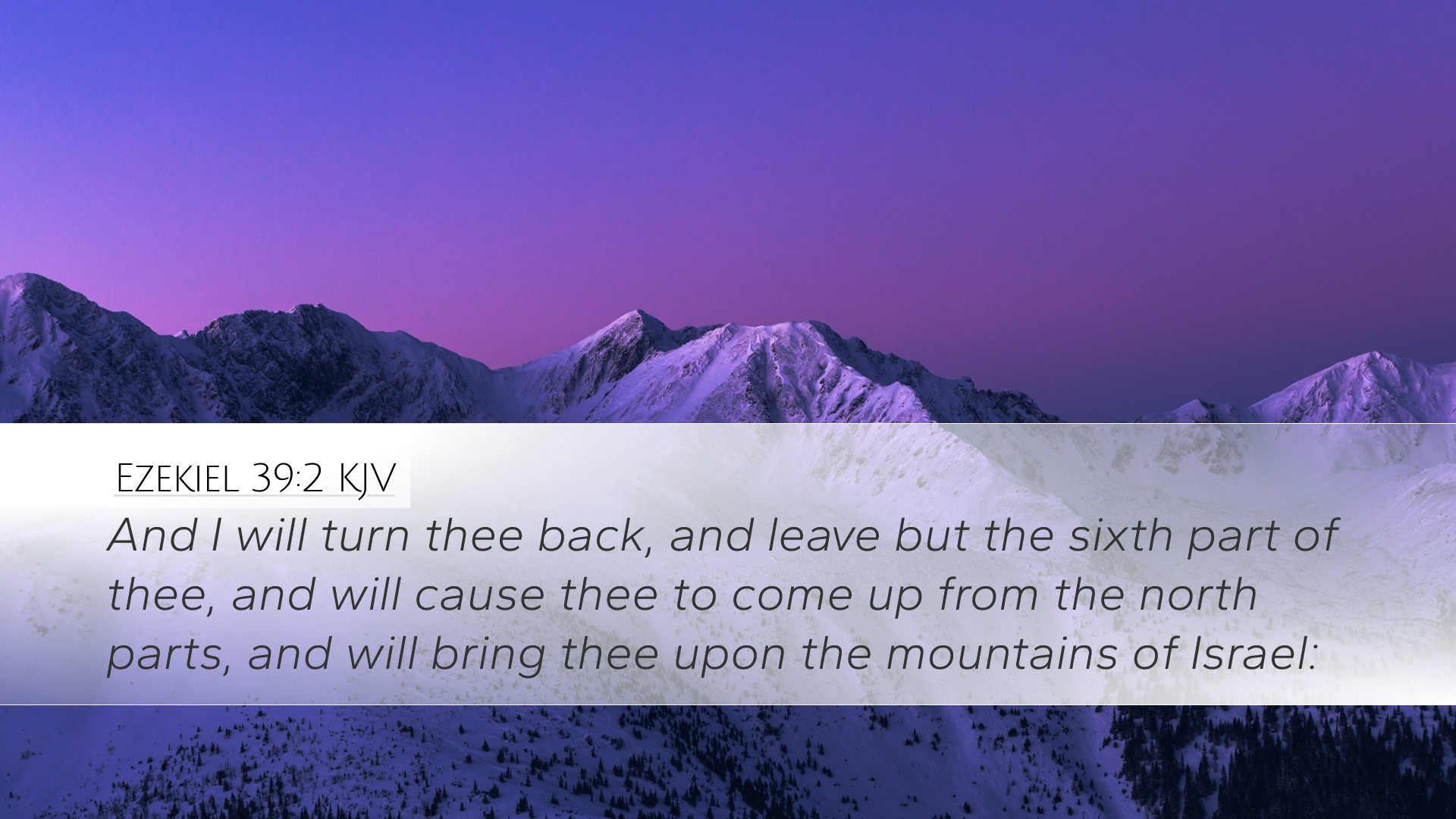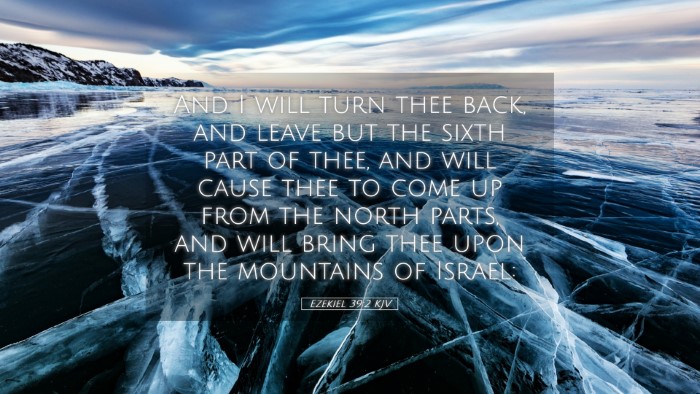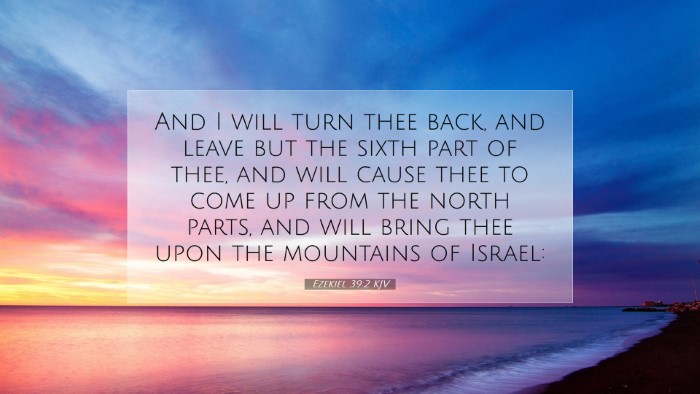Ezekiel 39:2 - A Comprehensive Commentary
Bible Verse: "And I will turn thee back, and leave but the sixth part of thee, and will cause thee to come up from the north parts, and will bring thee upon the mountains of Israel."
Introduction
The prophetic words of Ezekiel 39:2 signify a pivotal moment in the eschatological narrative concerning the fate of Gog and his vast army. The verse encapsulates divine judgment paired with a promise of restoration for Israel. It serves not only as a warning but also as a beacon of hope for God’s people.
Contextual Analysis
To fully appreciate Ezekiel's prophecy, it is essential to consider the historical and theological context. This chapter follows a sequence of divine revelations conveyed through Ezekiel regarding the impending judgment upon the nations, particularly those that rise against Israel.
Historical Background
Ezekiel prophesied during the Babylonian Exile, a turbulent time for the Israelites. The nation of Israel faced not just political dislocation but also spiritual alienation. The prophecies serve as assurance of God's sovereignty over the nations and a reiteration of His covenant promises.
Theological Implications
The focus on ‘the north parts’ is of particular significance. Scholars emphasize that this direction symbolizes opposition to God's people, often linked to the enemies of Israel. The use of geographical references is used to illustrate the expansive reach of God's judgment.
Commentary Insights
Matthew Henry
Matthew Henry notes that God’s turning back of Gog implies a divine intervention that alters the course of human events. He states that this action signifies not only the defeat of the enemy but also the preservation of a remnant of Israel. His emphasis on the ‘sixth part’ highlights the notion that, despite the devastation, there will be survivors—a motif echoed throughout the prophecies.
Albert Barnes
Albert Barnes elaborates on the significance of the ‘mountains of Israel’, suggesting that this imagery reflects both literal and metaphorical elevation. The mountains symbolize strength and stability, characteristics inherent in the promised land of Israel. Barnes emphasizes God's intention to lead His enemies to a place of their downfall, inducing a climactic confrontation that reaffirms His supremacy.
Adam Clarke
Adam Clarke provides a linguistically-rich examination of ‘the sixth part’ pointing towards a remnant theology present within Israel. He stresses the redemptive aspect of this prophecy, wherein the judgment brings forth a purifying process for the people of God. Clarke underscores the importance of repentance and return, illustrating how God's ultimate intention is restoration.
Exegesis of Key Terms
- “Turn thee back”: The phrase indicates a reversal of fortunes for Gog, emphasizing divine control over the outcomes of nations.
- “Leave but the sixth part”: This prophecy alludes to the significant loss the armies will incur while implying that a remnant will be spared.
- “North parts”: The northern territories symbolize the locus of opposition against Israel, historically associated with Babylonian forces.
- “Mountains of Israel”: Symbolizing God’s promise, the mountains are emblematic of strength and the location of final confrontation.
Theological Reflections
Ezekiel 39:2 embodies themes of judgment and redemption that resonate throughout biblical history. It is a testament to God’s sovereignty in the face of human arrogance. The remnant theology portrayed in this verse reminds believers that God preserves a faithful community even amid widespread judgment.
Application for Today's Believers
This passage provides rich theological application for contemporary believers. As pastors and theologians, there exists a dual call to proclaim both the impending judgment on unrepentant hearts and the promise of hope for those who turn to God:
- Hope in Judgement: Like Israel, believers today can find solace in God’s promises, knowing that His judgments ultimately lead to redemption.
- Understanding Divine Sovereignty: The evidence of God’s control over history encourages faithfulness and steadfastness in worship and service.
- Call to Repentance: The remnant points towards the need for communal and personal repentance in order to align with God's redemptive plan.
Conclusion
Ezekiel 39:2 serves as a profound reflection of God’s justice and mercy. By carefully examining the texts from respected commentators, we gain insight into the nature of God's actions throughout history and His ultimate purpose for His people. It urges modern believers to recognize the gravity of judgment while holding fast to the unshakeable hope found in Christ—a hope that echoes through every generation of faith.


